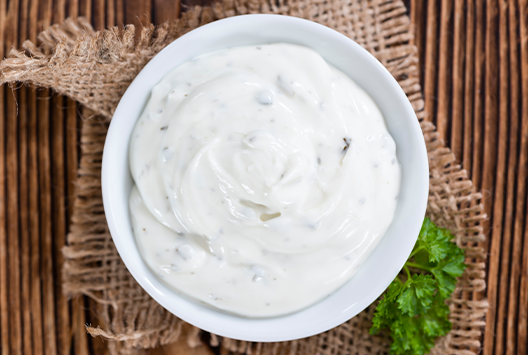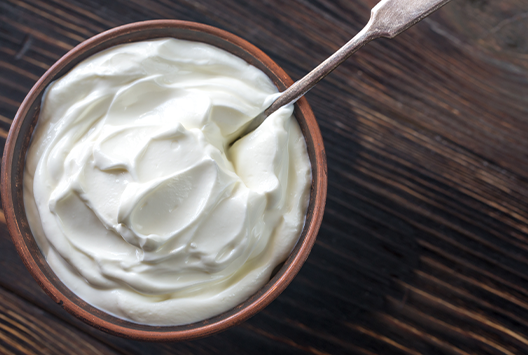
Understanding How Long Cheese Can Stay Out of the Fridge
Similar
Cheese is a versatile and delicious ingredient that finds its way into various dishes. It is a staple in many households — from gourmet cuisine to late-night snacks. However, storing cheese properly ensures it remains fresh and tasty. One common question arises: how long can cheese stay out of the refrigerator?
We’ve put together a quick guide that will help you understand the factors that affect the shelf life of cheese and how long it can be kept out of the fridge.
Factors affecting the shelf life of cheese
Several factors can influence how long cheese can stay out of the refrigerator. These factors include the type of cheese, the environment's temperature, and the humidity levels.
1. Type of cheese
There are hundreds of different types of cheese, and they all have other properties that affect their shelf life. For instance, hard cheeses like cheddar cheese, gouda, and parmesan can stay out of the fridge longer than soft cheeses like brie, camembert, and blue cheese. This is because hard cheeses have a lower moisture content, making them less susceptible to bacterial growth.
2. Temperature
The environment's temperature plays a crucial role in how long cheese can stay out of the refrigerator. The warmer the temperature, the quicker bacteria will grow and spoil the cheese. The perfect temperature for storing cheese is between 35°F and 45°F (1.6°C and 7.2°C). However, most cheeses can be safely left out at room temperature (around 70°F or 21°C) for a short period.
3. Humidity
Humidity is another factor that affects how long cheese can stay out of the fridge. High humidity levels can cause the cheese to spoil faster due to increased microbial growth. On the other hand, low humidity levels can make the cheese dry out and lose its flavor.
How long can different types of cheese stay out of the fridge?
Now that we know the factors that affect the shelf life of cheese, let's look at how long different types of cheese can stay out of the refrigerator.
1. Hard cheeses
As mentioned earlier, hard cheeses like cheddar, gouda, and parmesan have a lower moisture content, making them less susceptible to bacterial growth. These cheeses can generally be left out at room temperature for up to 8 hours. However, consuming them within 4 hours is best to ensure the best flavor and quality.
2. Semi-hard cheeses
Semi-hard cheeses like provolone, swiss, and Monterey Jack can be left at room temperature for up to 4 hours. After this time, the risk of bacterial growth increases, and the cheese should be refrigerated.
3. Soft cheeses
Soft cheeses like brie, camembert, and blue cheese are more perishable and should not be kept outside of the fridge for more than 2 hours. This is because their high moisture content makes them more susceptible to bacterial growth.
4. Fresh cheeses
Fresh cheeses like mozzarella, ricotta, and cottage cheese are the most perishable and should never be left out of the fridge for more than 1 hour. These cheeses have a very high moisture content, making them a breeding ground for bacteria.
Tips for storing cheese properly
To ensure your cheese stays fresh and delicious, follow these storage tips:
1. Wrap the cheese in wax or parchment paper instead of plastic wrap. This allows the cheese to breathe and prevents it from becoming too damp.
2. Store cheese in a designated cheese drawer or container in the refrigerator. This helps maintain a consistent temperature and humidity level.
3. If you're storing multiple types of cheese, keep them separated to prevent cross-contamination and flavor transfer.
4. Don't store cheese next to strongly flavored foods like onions or garlic, as it can absorb their flavors.
5. When serving cheese at a party or gathering, only put out small portions at a time. This helps prevent the cheese from sitting out too long and becoming unsafe.
Get your cheese today
By understanding the factors that affect the shelf life of cheese and following the above storage tips, you can ensure that your cheese stays fresh and tasty for as long as possible. Whether enjoying a simple cheese platter or incorporating cheese into your favorite recipes, proper storage and handling will help you maximize your cheese experience and minimize waste.
If you’re looking for some high-quality cheese, Baladna is here for you. Our range of authentic, fresh, and quality dairy products reflects our dedication to animal welfare and sustainability. To see our variety of locally-produced options, check out our products today and see our ongoing efforts to create a more sustainable and self-reliant future in food production.



